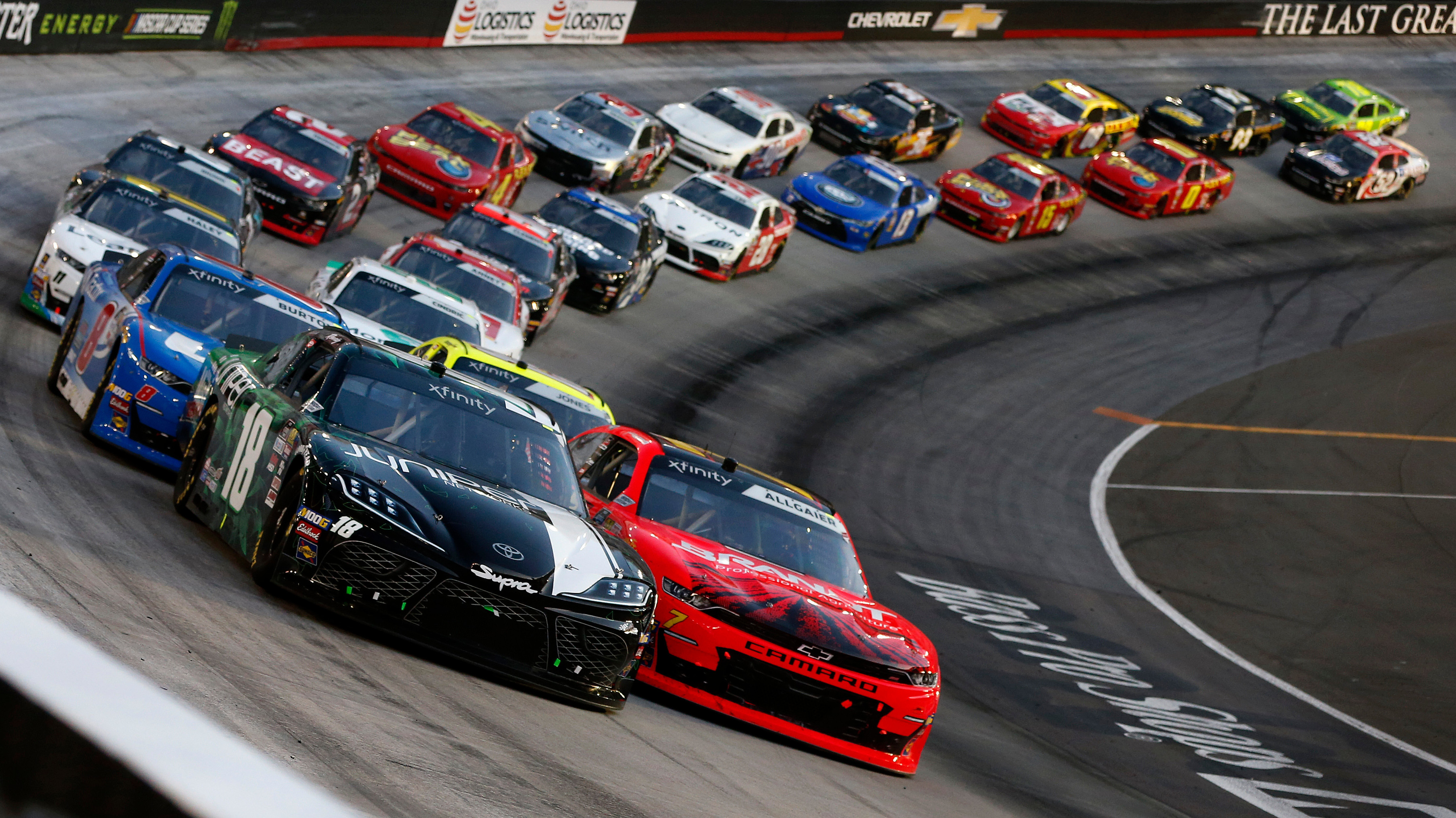NASCAR Further Limits How Often Its Top-Level Cup Drivers Can Race In Lower Series
NASCAR has made a lot of rule changes, and changes to those very rule changes, over the past handful of years. But perhaps one of the most called-for new rules as of late has been the limitation of top-level Cup Series drivers' participation in lower NASCAR series, and things are about to get even more limited.
NASCAR announced Wednesday that in 2020, Cup drivers with "more than three years" of experience in that top series will be limited to running five races per season in both the Xfinity Series and Truck Series. The Cup, Xfinity and Truck series are the three national levels of NASCAR that often share race weekends, with Cup being the highest and the trucks being the lowest, meaning it's easy for drivers to run more than one race in a weekend.
The drivers affected by the rules changes, in addition to being limited in number of races, won't be allowed to run in the regular-season finale or playoff races in the lower series. They also can't run in the series' events that count for bonus money, like the Xfinity Series Dash for Cash or the Triple Truck Challenge.
The 2020 rules will be different in a couple of ways. This year, the only drivers limited are ones with more than five years of Cup experience who are earning Cup Series points—not three—and even they're allowed to run seven Xfinity races. The number of Truck Series races, five, won't change next year.
NASCAR said the new rules "continue a trend of reducing the impact of Monster Energy [Cup] Series drivers in the Xfinity Series and Gander Trucks in an effort to better showcase those series' competitors," and said they don't single out any particular driver, such as Kyle Busch, who visits and dominates the lower series as much as he's allowed. (The other week, Busch won the second Xfinity stage at Bristol Motor Speedway even with a failing engine toward the end.)
From the announcement:
"We've made small tweaks since then, and this is third tweak, but the goal is to find a happy medium or that sweet spot where it works for all of our stakeholders," said Meghan Miley, NASCAR senior director of racing operations. "We hear from the fans that we need to get Cup drivers out of Xfinity and Trucks, and they want to just see the regulars, but we hear from the younger drivers that, 'Hey, we want to race against these guys because they make us better.'
The new rules also include lowering the maximum amount of cars in the Xfinity Series field from 38 to 36, after lowering it from 40 to 38 this year.
Miley's quote from the announcement sums up part of the debate over the rules on driver limitation, which have made the lower series less of a playground for Cup drivers to dominate on and thus more entertaining to watch. But limitations can also have unexpected negatives, like Busch's open dislike for them.
Busch—a team owner in the Truck Series, who was joined by Cup driver Brad Keselowski until he shut down his team in 2017, saying it lost about $1 million annually—called the rules a "damn shame" to USA Today. He told Jalopnik in 2017 that, as of then, his Kyle Busch Motorsports truck team also operated at a loss and mentioned the positives of him getting in a truck in terms of keeping the team going.
"I race in the Truck Series because I love to race, but it is also a business," Busch told Jalopnik that year. "Being able to bring in sponsorship for the races that I drive helps subsidize the costs for our other teams in the building based on economies of scale.
"We are not going to comment on the amount of personal money I contribute, but just by saying that tells you that we operate at a loss. Too big of a loss or not having enough fun would make KBM seriously consider the alternative."
That mention of "not having enough fun" is likely related to the limitations.
But entertainment comes at a price sometimes, and in 2020, it'll come at the price of two more Xfinity Series races that Cup Series drivers will have to drop.
